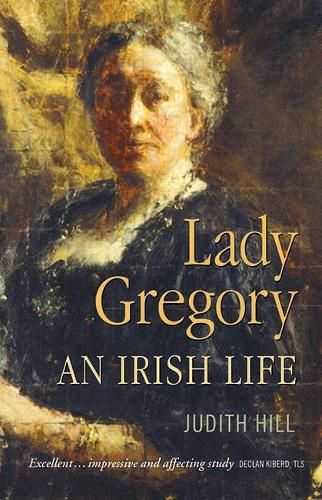Readings Newsletter
Become a Readings Member to make your shopping experience even easier.
Sign in or sign up for free!
You’re not far away from qualifying for FREE standard shipping within Australia
You’ve qualified for FREE standard shipping within Australia
The cart is loading…






LADY GREGORY was founder of the Abbey Theatre and patron of W.B. Yeats, writer of successful plays and celebrated translations of Irish legends, the daughter of a Galway landowner and mistress of Coole Park. She never expected to make her mark on the literature or the land of her birth. Yet she became a key figure in the Irish Revival. Judith Hill’s biography investigates Augusta Gregory’s varied relationships and the contradictions and achievements of her life, and brings her out from the shadow of Yeats. A woman of great emotional restraint, she nevertheless fell in love with the poet Wilfrid Blunt and, at 60, had a brief romance with her friend, the New York lawyer John Quinn. This portrait of a fascinating woman places Lady Gregory in the Ireland of her time, depicting her journey into nationalist politics and unravelling the connection between her life and work.
$9.00 standard shipping within Australia
FREE standard shipping within Australia for orders over $100.00
Express & International shipping calculated at checkout
LADY GREGORY was founder of the Abbey Theatre and patron of W.B. Yeats, writer of successful plays and celebrated translations of Irish legends, the daughter of a Galway landowner and mistress of Coole Park. She never expected to make her mark on the literature or the land of her birth. Yet she became a key figure in the Irish Revival. Judith Hill’s biography investigates Augusta Gregory’s varied relationships and the contradictions and achievements of her life, and brings her out from the shadow of Yeats. A woman of great emotional restraint, she nevertheless fell in love with the poet Wilfrid Blunt and, at 60, had a brief romance with her friend, the New York lawyer John Quinn. This portrait of a fascinating woman places Lady Gregory in the Ireland of her time, depicting her journey into nationalist politics and unravelling the connection between her life and work.